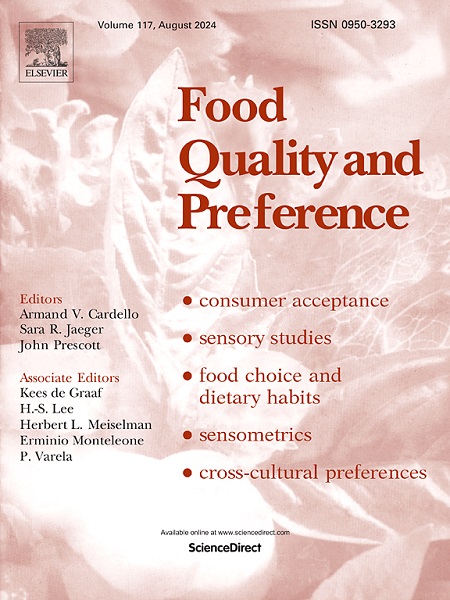Unveiling the impact of health star ratings: Subjective nutrition knowledge as a moderator of consumer responses to unhealthy foods
IF 4.9
1区 农林科学
Q1 FOOD SCIENCE & TECHNOLOGY
引用次数: 0
Abstract
The present research demonstrates that a Health Star Rating (HSR), one type of interpretive label, can enhance consumer responses among individuals with low subjective nutrition knowledge (SNK). Across three experiments, including a qualitative follow-up, we show that voluntarily adopted HSRs increase preference and purchase intention—even for products with low health ratings—by fostering favorable brand inferences rooted in perceived transparency, particularly among individuals with lower SNK. This work contributes to the food labeling literature by identifying which consumers are most likely to benefit from HSRs on unhealthy items and extends attribution theory by illustrating how voluntary disclosure can enhance brand evaluations. Practically, our findings suggest that, when paired with consumer education, voluntary interpretive labeling—such as the HSR—can support informed decision-making, guide policymakers in promoting non-mandatory labeling systems, and enhance brand perceptions for food companies.
揭示健康星级评级的影响:主观营养知识作为消费者对不健康食品反应的调节因素
本研究表明,健康之星评级(HSR)作为一种解释性标签,可以增强主观营养知识(SNK)较低个体的消费者反应。在包括定性随访在内的三个实验中,我们表明,自愿采用hsr会增加偏好和购买意愿——即使是对健康评级较低的产品——通过培养基于感知透明度的有利品牌推断,尤其是在SNK较低的个体中。这项工作通过确定哪些消费者最有可能从不健康食品的HSRs中受益,并通过说明自愿披露如何提高品牌评价来扩展归因理论,从而为食品标签文献做出了贡献。实际上,我们的研究结果表明,当与消费者教育相结合时,自愿性解释性标签(如hsr)可以支持知情决策,指导政策制定者推广非强制性标签制度,并增强食品公司的品牌认知。
本文章由计算机程序翻译,如有差异,请以英文原文为准。
求助全文
约1分钟内获得全文
求助全文
来源期刊

Food Quality and Preference
工程技术-食品科技
CiteScore
10.40
自引率
15.10%
发文量
263
审稿时长
38 days
期刊介绍:
Food Quality and Preference is a journal devoted to sensory, consumer and behavioural research in food and non-food products. It publishes original research, critical reviews, and short communications in sensory and consumer science, and sensometrics. In addition, the journal publishes special invited issues on important timely topics and from relevant conferences. These are aimed at bridging the gap between research and application, bringing together authors and readers in consumer and market research, sensory science, sensometrics and sensory evaluation, nutrition and food choice, as well as food research, product development and sensory quality assurance. Submissions to Food Quality and Preference are limited to papers that include some form of human measurement; papers that are limited to physical/chemical measures or the routine application of sensory, consumer or econometric analysis will not be considered unless they specifically make a novel scientific contribution in line with the journal''s coverage as outlined below.
 求助内容:
求助内容: 应助结果提醒方式:
应助结果提醒方式:


